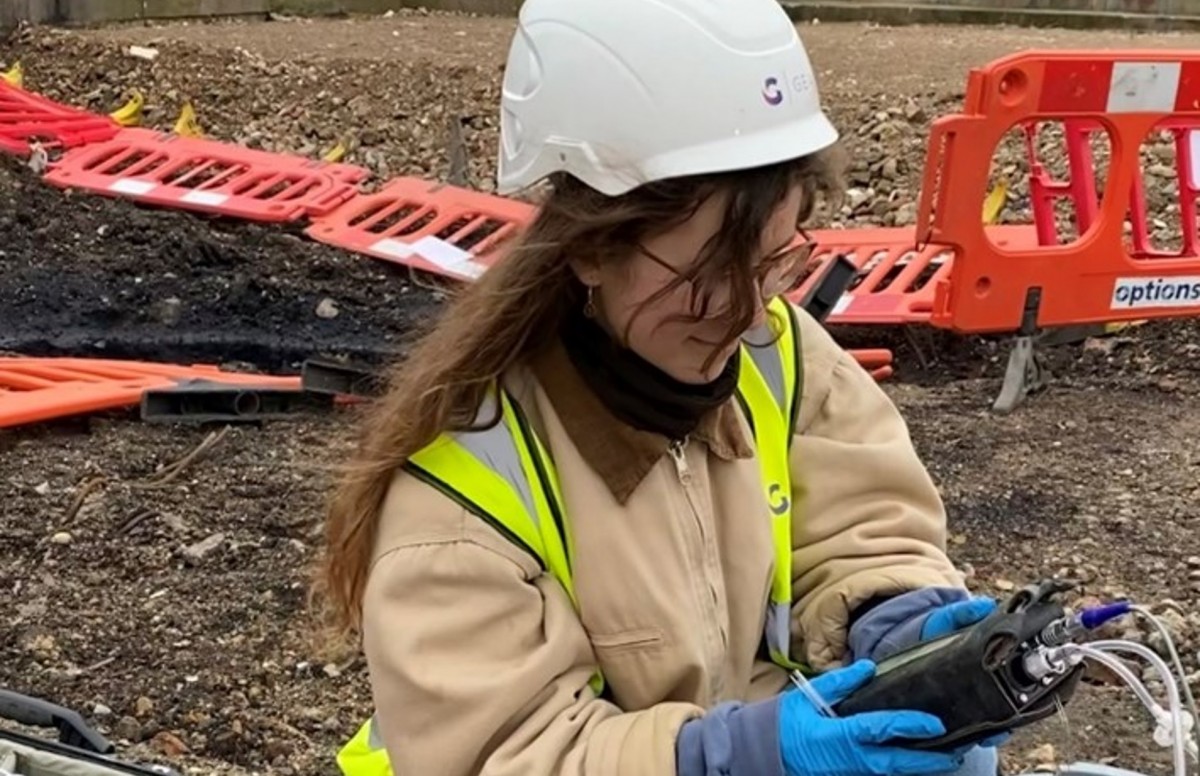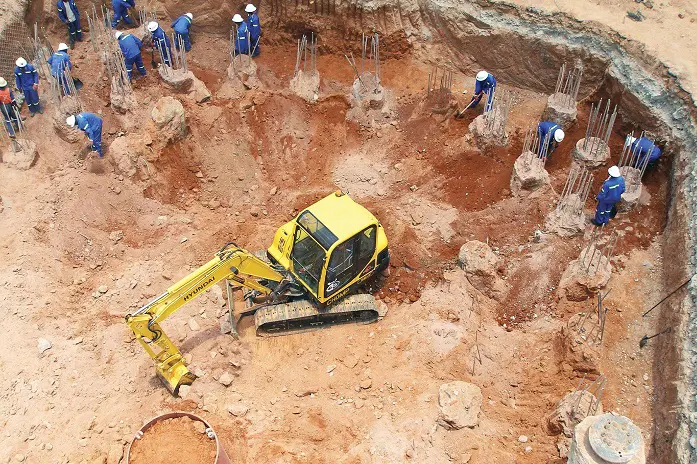Consulting Engineers Johannesburg: Professional Engineering Providers for Large-Scale Projects
Consulting Engineers Johannesburg: Professional Engineering Providers for Large-Scale Projects
Blog Article
A Detailed Overview of the Trick Providers Provided by Consulting Civil Design Professionals in Modern Building
Consulting civil design experts are important to the success of contemporary building and construction projects, offering a multifaceted collection of services that resolve various challenges. From carrying out extensive website analyses and usefulness research studies to guaranteeing compliance with rigorous regulative structures, these professionals lay the groundwork for safe and sustainable development. Their know-how encompasses architectural layout and project administration, which are essential for achieving cost-efficient and prompt end results. As the complexity of building tasks remains to progress, comprehending the full range of services they provide comes to be progressively crucial for stakeholders. What ramifications does this have for the future of building and construction techniques?
Website Assessment and Expediency Researches
When beginning on any building task, comprehending the website's qualities is critical, as it directly influences the expediency and layout of the development. Site analysis and feasibility research studies are crucial elements of the pre-construction stage, enabling stakeholders to make informed decisions. These researches include a detailed evaluation of the physical, ecological, and regulative facets of the site.

Expediency researches prolong past the physical qualities, encompassing financial and social factors to consider. This includes expense estimates, possible roi, and area impact evaluations. By integrating these elements, civil engineering experts can give a holistic view of the website's stability for the intended advancement. Inevitably, extensive site analyses and feasibility research studies lay the groundwork for successful job implementation, decreasing dangers and optimizing source allotment.
Structural Design and Analysis
Complying with an extensive site evaluation and feasibility study, the next vital stage in the building and construction procedure is architectural layout and evaluation. This essential service involves the growth of structural systems that ensure the safety and security, resilience, and financial viability of a project. Consulting civil designers make use of innovative methodologies and software to evaluate lots, anxieties, and material residential or commercial properties, making sure that styles abide by appropriate codes and requirements.
Architectural style encompasses various elements, consisting of light beams, columns, foundations, and bearing walls. By applying concepts of mechanics and product scientific research, engineers produce structures that can endure ecological pressures such as wind, seismic activity, and snow loads. The evaluation phase entails precise estimations to anticipate the behavior of these frameworks under numerous conditions, ensuring they can do as meant throughout their life-span.
In addition, getting in touch with designers collaborate carefully with designers and various other stakeholders to integrate structural aspects visually and functionally. The deliverables typically consist of detailed drawings, specifications, and detailed records that help with the building and construction process. Ultimately, efficient architectural layout and analysis are critical in decreasing dangers, enhancing sources, and accomplishing successful job outcomes in contemporary building and construction.
Job Management and Sychronisation
Reliable project management and control are vital components of successful civil engineering solutions, making certain that building and construction jobs are delivered on schedule, within budget plan, and to the needed high quality requirements. Consulting civil designers play an essential function in orchestrating different job aspects, from first planning with to forecast completion. This entails not only the technical aspects of design and building and construction yet also the calculated administration of resources, timelines, and stakeholders.

Furthermore, civil design consultants highlight the significance of documents and reporting throughout the project lifecycle - geotechnical engineering in south africa. By keeping precise documents, they make sure transparency and responsibility, which promotes trust fund among all celebrations entailed. Eventually, proficient job monitoring and control cause boosted task outcomes, aligning with customer expectations and adding to the total success of the building and construction undertaking
Regulatory Compliance and Permitting
Effective task management prepares for addressing regulatory compliance and allowing needs in civil engineering projects. Ensuring adherence to local, state, and government laws is crucial for the effective implementation and conclusion of any type of construction undertaking. Consulting civil design professionals play a crucial duty in browsing the complex landscape of regulative structures and allowing procedures.
These professionals are skilled in zoning laws, constructing codes, ecological guidelines, and security standards that control construction methods. They conduct detailed assessments to determine all useful reference appropriate regulations, making sure that projects abide by necessary lawful requirements. By teaming up with governmental firms and stakeholders, seeking advice from engineers promote the permitting procedure, simplifying approvals and decreasing delays.
Additionally, they prepare and submit the requisite documents, such as site strategies, ecological influence evaluations, and design reports. This positive approach not just fosters conformity but likewise enhances task feasibility and sustainability. Inevitably, effective governing compliance and permitting are vital parts of an effective civil engineering task, protecting both the setting and public well-being while adding to the overall honesty and success of building and construction campaigns.
Sustainable Layout Practices
Sustainable style methods are increasingly acknowledged as important elements in civil design, with a focus on minimizing environmental influence while making best use of resource efficiency. These methods incorporate a series of strategies focused on advertising ecological balance and reducing the carbon footprint of construction jobs.
One trick aspect of sustainable layout is the integration of sustainable power sources, such as solar and wind, right into building designs. This not only reduces reliance on fossil fuels but likewise improves long-lasting cost savings. Furthermore, using sustainable materials, consisting of recycled or quickly renewable sources, plays a significant duty in lessening waste and saving natural resources.
Water administration strategies, such as rain harvesting and effective irrigation systems, are likewise important in sustainable their website layout. These practices help in decreasing water consumption and protecting local water communities. Moreover, eco sensitive site preparation makes sure marginal interruption to the natural landscape and advertises biodiversity.
Consulting civil engineering specialists contribute in applying these sustainable design techniques. Their proficiency permits for the implementation of innovative remedies that straighten with both regulative requirements and customer objectives, inevitably adding to a more lasting built setting.
Final Thought
In summary, consulting civil design professionals give necessary solutions that underpin the success of modern building and construction jobs. Through careful site evaluations, innovative structural style, effective task management, adherence to regulatory criteria, and the implementation of lasting techniques, these experts add to the production of secure, efficient, and try this site environmentally liable growths. The integration of these crucial solutions not just boosts task end results but additionally promotes a sustainable future in the building market.
Reliable task management and control are essential elements of effective civil design solutions, ensuring that building tasks are supplied on time, within budget, and to the required quality requirements. Consulting civil designers play an essential function in coordinating various project aspects, from preliminary preparation with to forecast conclusion. Ultimately, efficient job monitoring and coordination lead to enhanced task outcomes, aligning with client expectations and adding to the overall success of the construction venture.

Report this page